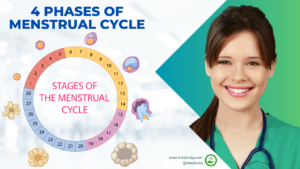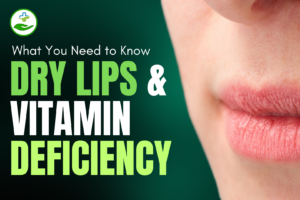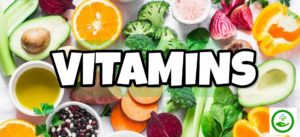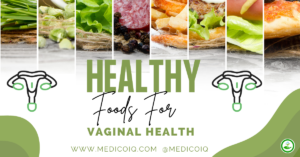If you’re aiming to build muscle, maintain a healthy weight, or simply live a balanced lifestyle, protein is a nutrient you can’t afford to ignore. Protein is essential for muscle repair, hormone regulation, enzyme function, and immune support.
Adding protein-rich foods to your daily diet can help you feel fuller longer, manage cravings, and keep your energy levels high.
In this article, we’ll walk you through the top 15 protein rich foods you should include in your meals. Whether you prefer plant-based or animal-based sources, there’s something here for everyone aiming for a healthier life.
Why Protein Rich Foods Are Essential For Your Health
What Are Protein Rich Foods?
Protein rich foods are those that contain a high amount of protein per serving. These foods can come from both animal and plant sources.
Animal-based sources like meat, eggs, and dairy contain complete proteins, meaning they provide all nine essential amino acids. Plant-based proteins, while sometimes incomplete, can be combined to meet all amino acid needs.
Benefits of a Protein Rich Diet
- Muscle growth and repair
- Improved metabolism
- Better weight management
- Stronger bones, hair, and nails
- Enhanced immune system support
Looking for natural ways to manage hot flashes? Don’t miss our list of 9 foods that fight hot flashes and help you stay cool and balanced.
Top 15 Protein Rich Foods For A Healthy Diet
1. Eggs
One of the most complete and affordable sources of protein. One large egg contains around 6 grams of high-quality protein. Perfect for breakfast or as a snack.

2. Chicken Breast
A lean source of protein, chicken breast offers about 31 grams of protein per 100 grams. It’s low in fat and highly versatile for various recipes.

3. Greek Yogurt
Packed with protein and probiotics, Greek yogurt provides about 10 grams of protein per 100 grams. It’s great for breakfast, snacks, or smoothies.

4. Lentils
Lentils contain approximately 9 grams of protein per 100 grams. They are also high in fiber and iron, making them a powerful plant-based protein option.
5. Cottage Cheese (Paneer)
Paneer offers around 11 grams of protein per 100 grams. It’s popular in vegetarian diets and can be added to curries, salads, or grilled dishes.
6. Tofu
Tofu provides 8 grams of protein per 100 grams and is a vegan-friendly, low-fat protein source. It absorbs flavor well and is excellent for stir-fries.
7. Tuna
Tuna fish is high in protein, with approximately 30 grams per 100 grams. It’s low in fat and calories and ideal for salads and sandwiches.
8. Quinoa
Quinoa is a rare plant-based complete protein, offering 8 grams of protein per cup (cooked). It’s also gluten-free and rich in fiber.
9. Almonds
Almonds provide around 6 grams of protein per 28 grams (about a handful). They also contain healthy fats and fiber, making them a perfect snack.
10. Chickpeas
Chickpeas are rich in both protein (9 grams per 100 grams) and fiber. Ideal for making hummus or adding to salads and curries.
11. Milk
Milk offers around 8 grams of protein per cup. It’s also a good source of calcium and vitamin D.

12. Tempeh
Tempeh provides 19 grams of protein per 100 grams and is a fermented soy product that also supports gut health.
13. Salmon
Salmon offers 25 grams of protein per 100 grams and is rich in omega-3 fatty acids, making it excellent for heart and brain health.
14. Edamame
Boiled edamame provides 11 grams of protein per 100 grams. They are perfect as a snack or salad topping.
15. Pumpkin Seeds
Pumpkin seeds offer 7 grams of protein per 28 grams. They are easy to sprinkle on yogurt, oatmeal, or salads.
How To Include Protein Rich Foods In Your Daily Diet
Meal Planning Tips
- Mix plant and animal proteins.
- Aim for 20–30 grams of protein per meal.
- Prepare meals in advance to avoid processed options.
High-Protein Meal Ideas
- Breakfast: Eggs with whole grain toast, or Greek yogurt with almonds.
- Lunch: Grilled chicken quinoa bowl or lentil soup with salad.
- Dinner: Baked salmon with steamed broccoli or tofu stir-fry with brown rice.
- Snacks: Boiled eggs, roasted chickpeas, or protein smoothies.
Conclusion
Protein rich foods are essential for maintaining muscle mass, managing weight, and supporting overall health. Whether you’re vegetarian, vegan, or a meat-eater, there’s a wide variety of protein-rich options available.
Make sure to incorporate them into your meals strategically to maximize their benefits. Prioritize whole foods, plan your meals, and enjoy the journey to a healthier, more energized you!
FAQs
How much protein do I need daily?
Most adults need around 0.8 grams of protein per kilogram of body weight, but active individuals may need more.
Are plant-based proteins enough?
Yes, when combined properly, plant-based proteins can provide all essential amino acids.
Can too much protein be harmful?
Excess protein can stress kidneys in some individuals, so balance and variety are key.
Best protein sources for vegetarians?
Lentils, tofu, paneer, chickpeas, quinoa, and tempeh.







